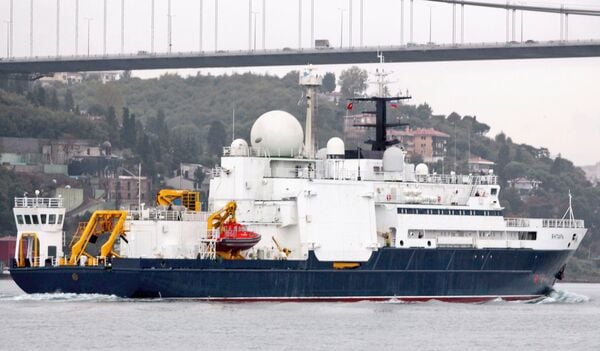
Concerns have been raised about the Russian ship Yantar's ability to cut or tap into undersea cables. (Yoruk Isik)
The dependence on Chinese repair assets and the lack of Russian dependence on subsea cable communications create a greater risk for the protection of undersea cabling infrastructure, according to a recently released report by the Center for Strategic and International Studies (CSIS), a think tank based in Washington, DC.
“The overreliance on Chinese repair ships due to limited alternatives in the marketplace is another vulnerability if, during a time of military conflict, the Chinese government prohibits access to its repair ships and subsea cables are left damaged without timely repair,” CSIS said in its report Safeguarding Subsea Cables Protecting Cyber Infrastructure amid Great Power Competition , released publicly on 12 November.
“US and allied officials have warned that the repair and maintenance process of undersea cables in the Pacific Ocean makes them even more vulnerable to espionage from the Chinese Communist Party (CCP) or other state actors,” CSIS reported.
State-controlled Chinese company SB Submarine Systems (SBSS) repairs international undersea cables, including those owned by US companies such as Google and Meta, CSIS noted.
“It appears that SBSS has been hiding its vessels' locations from radio- and satellite-tracking services without plausible explanation while operating off Taiwan, Indonesia, and other coasts in Asia,” CSIS said.
CSIS noted concerns that Chinese cable-repair companies such as SBSS could tap undersea data streams, map the ocean floor to conduct reconnaissance on US military communication links, or obtain highly specific location data from the internal documentation of cable systems that would allow “belligerent parties to cut cables with speed and precision”.
Protection recommendations
Looking to read the full article?
Gain unlimited access to Janes news and more...







